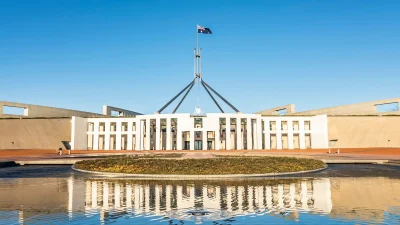Five events that shook markets in 2021


As the COVID-19 pandemic dragged on for a second year, the roll-out of a successful vaccine meant markets experienced fewer shocks and less volatility than in 2020. Since the start of the year to 10 December, the ASX 200 had returned 10% compared to returns of 2.7% over the same period in 2020.
Lockdown in Australia
In June, parts of Australia went into lockdown as a result of the Delta outbreak and remained in lockdown for several months. This meant people working in sectors such as retail or hospitality were without work again and consumers were unable to spend with a 4.8% fall in household consumption, leading to a decline in gross domestic product (GDP) which slumped to 1.9% in September. However, with restrictions now easing, it was expected the economy would be able to rebound quickly.
“We expect the economy to recover quickly from the lockdown headwinds of 2H21, with easing restrictions being met with strong demand from both consumers and corporates,” a Morgan Stanley report said.
“Government policy will be an important driver of economic activity next year. With a Federal election due by May we expect both major parties to propose deficit-expanding policies which should support broader sentiment.”
Vaccine success
While the vaccine was created in 2020, it was 2021 that saw a widespread rollout of the vaccine to protect Australians. First came Pfizer followed by AstraZeneca, and then Moderna was made available from October. At the time of writing, 88% of the population had been fully vaccinated.
Shares in Moderna were up 143%, Pfizer up 41% and AstraZeneca up 13% since the start of the year to 10 December.
Reserve Bank of Australia (RBA) governor, Phil Lowe, said the successful roll-out meant Australia had likely avoided two negative quarters of growth which would have triggered a recession.
Regulatory tension in China
Midway through the year, China introduced a crackdown on multiple sectors including education and technology. This led many investors to exit their positions in the country, causing outflows from Chinese and Asian equity funds, as they feared the implications of the crackdown on mega-cap Chinese companies such as Tencent and Alibaba although others saw opportunities to pick up a bargain.
Separately, the collapse of China’s second-largest property developer, Evergrande, was a blow to markets but did not lead to a systemic market collapse.
COP26
The United Nations Climate Change conference was held in November and saw world leaders come together to discuss their countries’ efforts to reduce greenhouse gases and target net zero emissions.
Prime Minister Scott Morrison was criticised for the lack of clear strategy for Australia and for being unwilling to act on coal, a major export for Australia.
The event threw a spotlight on the use of renewable energies and increased awareness of responsible and sustainable funds, as well as the need for firms and investors to integrate environmental, social and governance (ESG) practices.
Rising inflation
In the US, inflation rose significantly this year from 1.4% at the start of the year to 6.2% by October leading the Federal Reserve to consider the need for a rise in interest rates. While talk mostly focused on how inflation was only ‘transitory’, this was no longer the case. The Federal Reserve was due to meet on 14 to 15 December and it had been signalled a rate rise could take place in the first quarter of 2022.
However, it was not expected that Australia would follow the same steep path, Australia’s inflation was 3% in the third quarter, down from 3.8% in the second quarter.
Recommended for you
T. Rowe Price believes Australian growth is successfully managing to shrug off consumer weakness, but the firm’s multi-asset team is not yet positive enough to increase its underweight position.
Iress has issued an update denying the validity of “certain statements” made by an alleged threat actor, following a cyber incident last weekend.
The latest budget papers have outlined a $10 million provision for ASIC greenwashing enforcement activity as well as funds for a sustainable labelling regime to be partially met by industry levies.
Betashares has expanded its fixed income solutions with the launch of a new ETF offering exposure to subordinated bonds issued by the big four Australian banks.













